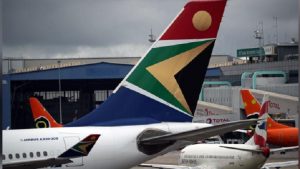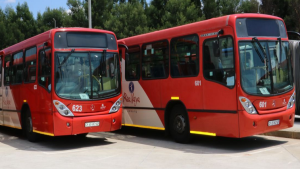South Africa’s low-cost airline sector grew robustly in the past 15 years, encroaching on the local market share of traditional carriers such as South African Airways.
Experts say we must, however, remember that full service network carriers have grown as well making aviation transportation a highly competitive industry, as seen with the number of low-cost carriers that have come and gone and very few managing to hold their ground. Some have eventually gone out of business because of the thin profit margins involved.
Being sustainable as a low-cost carrier has been challenging for many.
Covid-19 caused aviation industry to hit turbulence
The Covid-19 pandemic dealt a severe blow to the aviation industry, with Mango Airlines going into business rescue and no longer operating. Comair has made news lately following being placed under business rescue and recently had to halt its low-cost Kulula.com service as well as its more traditional British Airways service, due to funding constraints.
Trade union NUMSA has raised concerns about the survivability of both airlines, with the obvious consequences that it would have on the job security of current employees.
Experts say even after Covid, the demand fundamentals remain weak.
Aviation expert Joachim Vermooten says that Comair’s current difficulties have highlighted the challenges that are faced by the broader local airline industry.
“Because the average demand for flights is now far less, it has allowed the regional carriers to enter the low-cost market with slightly smaller aircraft than 180 seaters, while also being able to offer very good economics as a result of improvements in dynamics and the engine related issues. So today we have some of the traditional regional carriers moving into the so-called low-cost market,” says Vermooten describing the aviation landscape in South Africa at the moment.
The dark cloud has a silver-lining for some
Flying the friendly skies is not for the faint-hearted, and since Covid, aviation has become an even more volatile industry.
However, new local airline, LIFT, which operates the Johannesburg to Cape Town route, says Covid actually opened a window of opportunity for them to take off.
Jonathan Ayache, CEO of LIFT, says aircraft were available at much lower costs than previously because so many were grounded. Moreover, the availability of experienced personnel to operate the airline was extensive.
“Experienced people within the industry were available, because at the time we started preparing both SAA and Comair were not operating, so there was a huge amount of experience available, and we were able to bring those people onto our team.”
Lessons to be learned
Despite the success of a few, aviation is currently still low-demand, therefore, low cost airlines are being advised to rather have smaller aircraft in order to better ensure that most of their capacity is taken up.
It’s hoped that if Kulula.com and British Airways do survive, lessons on how to come back into the market will have been learned.
Vermooten, commenting on the lessons Comair can take away from their current woes, says,
“The one thing that I think Comair has learned is that if you restart, you should restart on a smaller level. I think to go to about 40% of the capacity output is just too quick and too large in the current circumstances. So I think that if they restart that will probably be a very good lesson learnt.”
Rising global oil prices add fuel to the fire
The increase in the price for jet fuel is another major pressure for aircraft operators and it is not always easy to immediately pass the price increases on to passengers.
LIFT’s CEO states that it is the price of fuel has more than doubled in the last year, and adds further that fuel is the single largest input cost into operating a flight.
“It’s very difficult to plan and predict what is going to happen and I think the key thing for airlines – all airlines – is the ability to be agile and nimble and adapt to the changing market conditions as best as you can,” he concludes.
With the recent news that Comair’s business rescue practitioners do not believe that the company has any prospect of raising the necessary funds to resume its Kulula.com and British Airways operations, this reduces the competitive landscape in the South African aviation sector.
Less competition could be negative for consumers, especially in an environment of high fuel prices.






